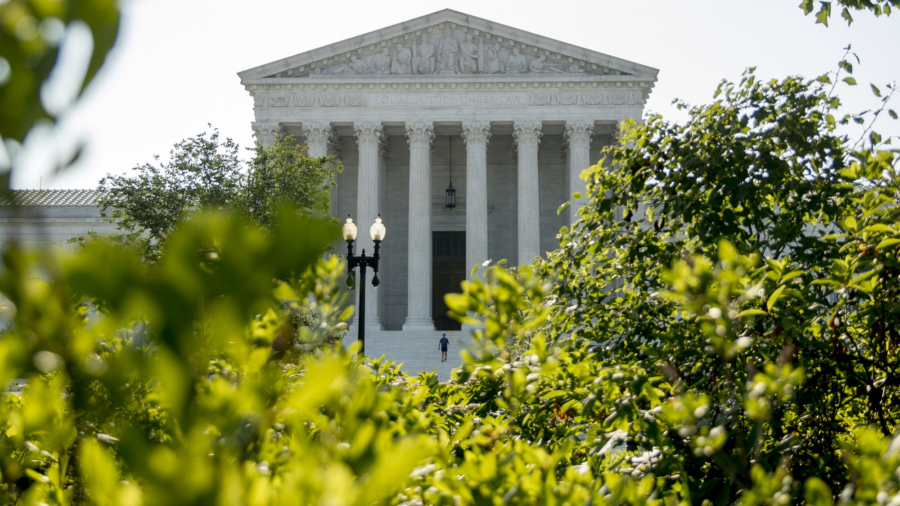The Supreme Court ruled 7-2 this morning that the First Amendment’s Establishment Clause exempts religious organizations from employment discrimination lawsuits and from a requirement to provide contraceptive coverage to their employees. Both rulings are victories for the Trump administration.
The First Amendment to the U.S. Constitution begins: “Congress shall make no law respecting an establishment of religion, or prohibiting the free exercise thereof …”
The high court issued 7-2 decisions July 8 in two separate sets of cases, Our Lady of Guadalupe School v. Morrissey-Berru and St. James School v. Biel, which were consolidated and heard together May 11 concerning employment discrimination, and in Little Sisters of the Poor v. Pennsylvania and Trump v. Pennsylvania, which were also consolidated and heard together May 6 concerning contraception.
Justices Ruth Bader Ginsburg and Sonia Sotomayor dissented from the majority opinions in both cases.
Two Roman Catholic schools in Los Angeles argued that the 9th Circuit Court of Appeals ignored binding caselaw by allowing teachers to move forward employment discrimination lawsuits. While one of the teachers claimed age discrimination, the other, who has since died and is now represented by her husband, alleged she was fired after informing the school she had breast cancer.
“The religious education and formation of students is the very reason for the existence of most private religious schools, and therefore the selection and supervision of the teachers upon whom the schools rely to do this work lie at the core of their mission[,]” Justice Samuel Alito writes for the majority.
“Judicial review of the way in which religious schools discharge those responsibilities would undermine the independence of religious institutions in a way that the First Amendment does not tolerate.”
The other set of cases dealt with the Affordable Care Act (ACA), also known as Obamacare, under which employers have to make cost-free contraceptives available to employees. Churches were exempted.
The 2011 Obama-era contraception mandate has spurred more than 100 lawsuits from private individuals, religious groups, state governments, and businesses that objected to it on religious grounds. In October 2017, the Trump administration issued a regulation exempting religious groups from complying with the Obamacare mandate.
The Trump administration argued the Obama administration had been wrong to try to compel religious organizations and others to provide services such as the morning-after pill in their health plans because doing so violated their religious beliefs.
Justice Clarence Thomas delivered the opinion of the court, writing that the 3rd Circuit Court of Appeals erred when it found that the federal departments of Health and Human Services, Labor, and the Treasury, which jointly administer the relevant ACA provision, lacked authority to issue an exemption to the mandate.
The departments stated that the exemption “aimed to ‘protec[t]’ religious organizations ‘from having to contract, arrange, pay, or refer for [contraceptive] coverage’ in a way that was consistent with and did not violate the Religious Freedom Restoration Act of 1993,” Thomas writes.
For more than 150 years the Little Sisters organization which considers contraception to be a sin, “have engaged in faithful service and sacrifice, motivated by a religious calling to surrender all for the sake of their brother,” the justice writes.
But for the past seven years since the mandate came out, they, “like many other religious objectors … have had to fight for the ability to continue in their noble work without violating their sincerely held religious beliefs.”
From The Epoch Times


